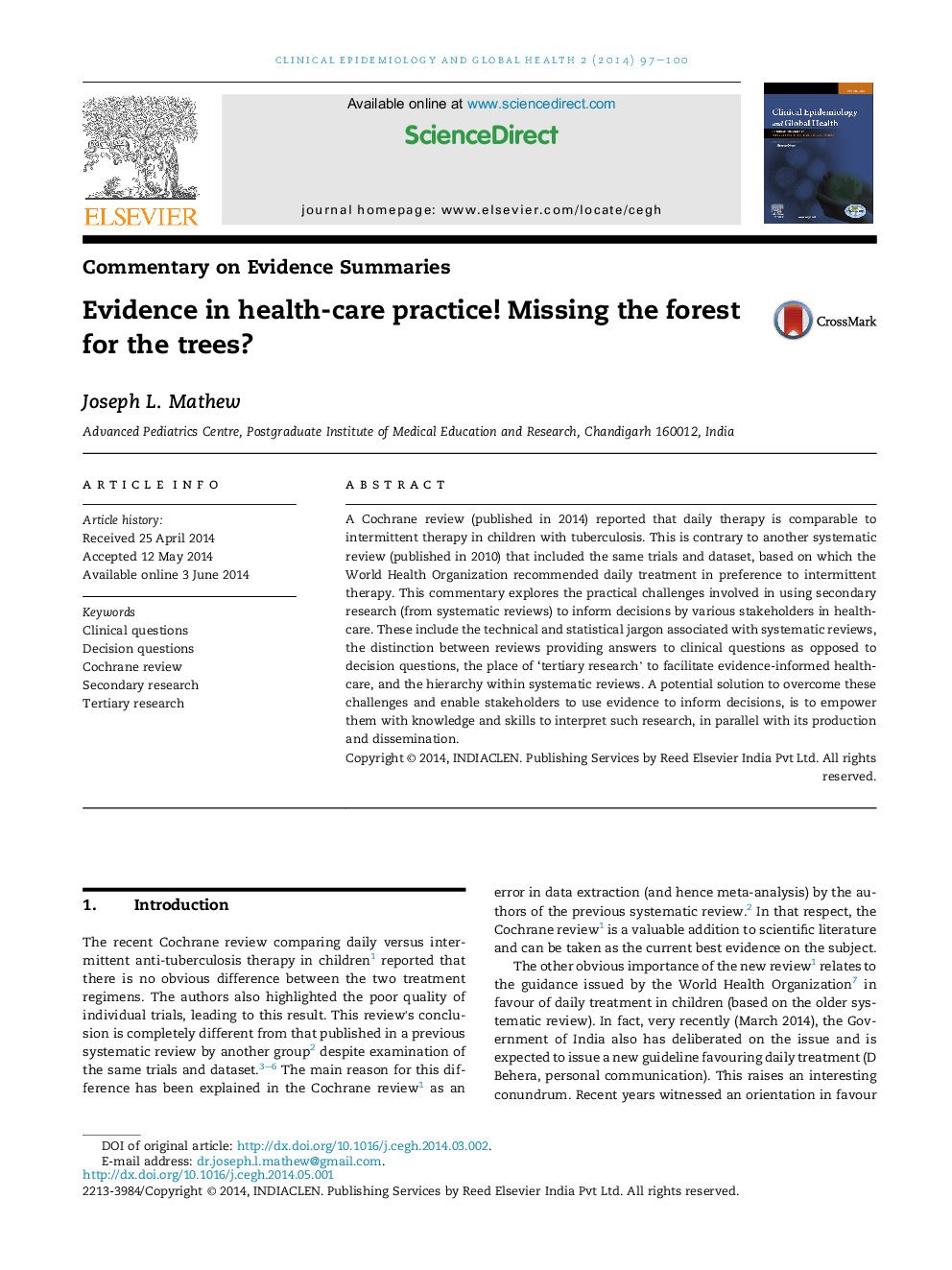| Article ID | Journal | Published Year | Pages | File Type |
|---|---|---|---|---|
| 3396288 | Clinical Epidemiology and Global Health | 2014 | 4 Pages |
A Cochrane review (published in 2014) reported that daily therapy is comparable to intermittent therapy in children with tuberculosis. This is contrary to another systematic review (published in 2010) that included the same trials and dataset, based on which the World Health Organization recommended daily treatment in preference to intermittent therapy. This commentary explores the practical challenges involved in using secondary research (from systematic reviews) to inform decisions by various stakeholders in health-care. These include the technical and statistical jargon associated with systematic reviews, the distinction between reviews providing answers to clinical questions as opposed to decision questions, the place of ‘tertiary research’ to facilitate evidence-informed health-care, and the hierarchy within systematic reviews. A potential solution to overcome these challenges and enable stakeholders to use evidence to inform decisions, is to empower them with knowledge and skills to interpret such research, in parallel with its production and dissemination.
